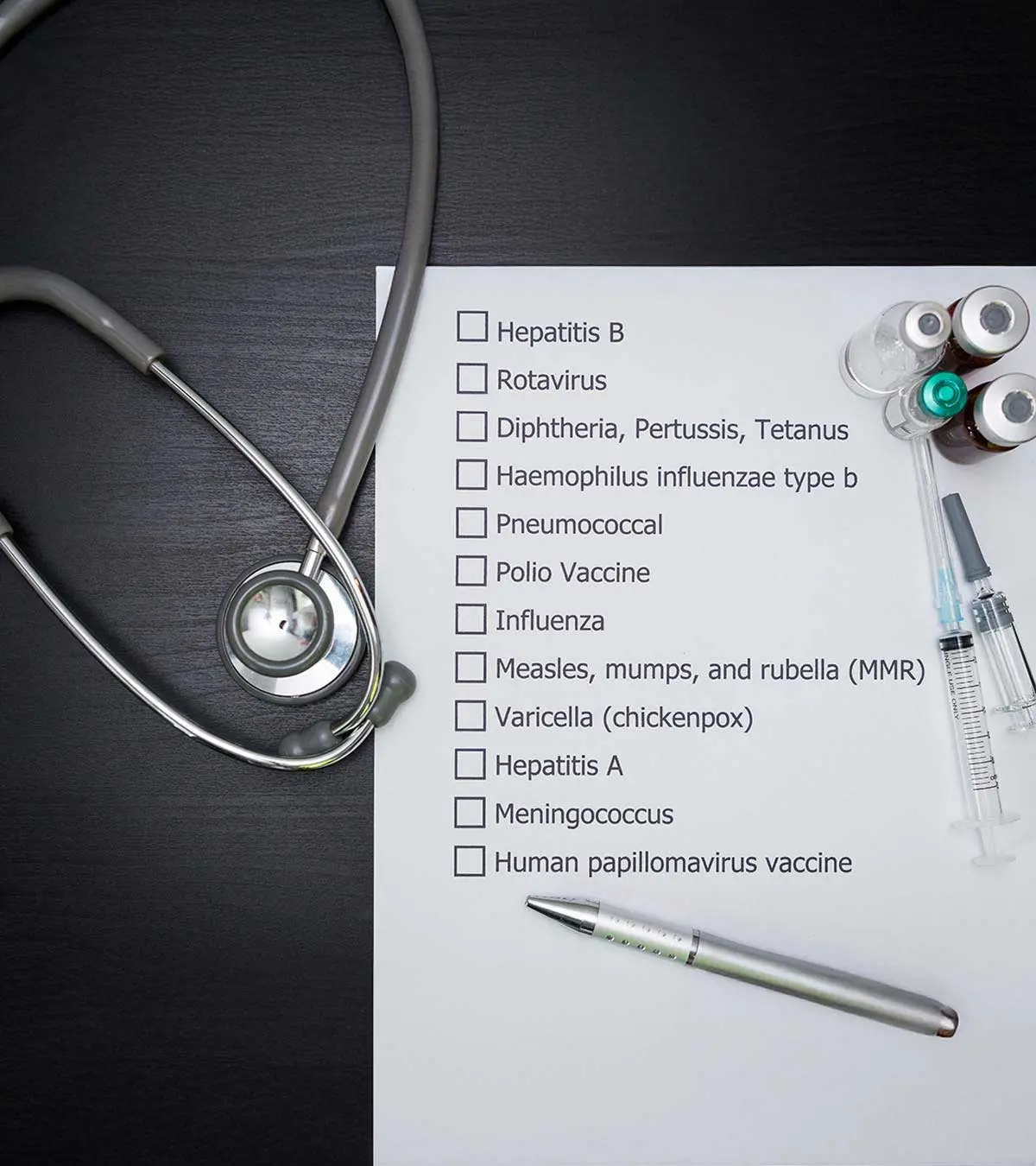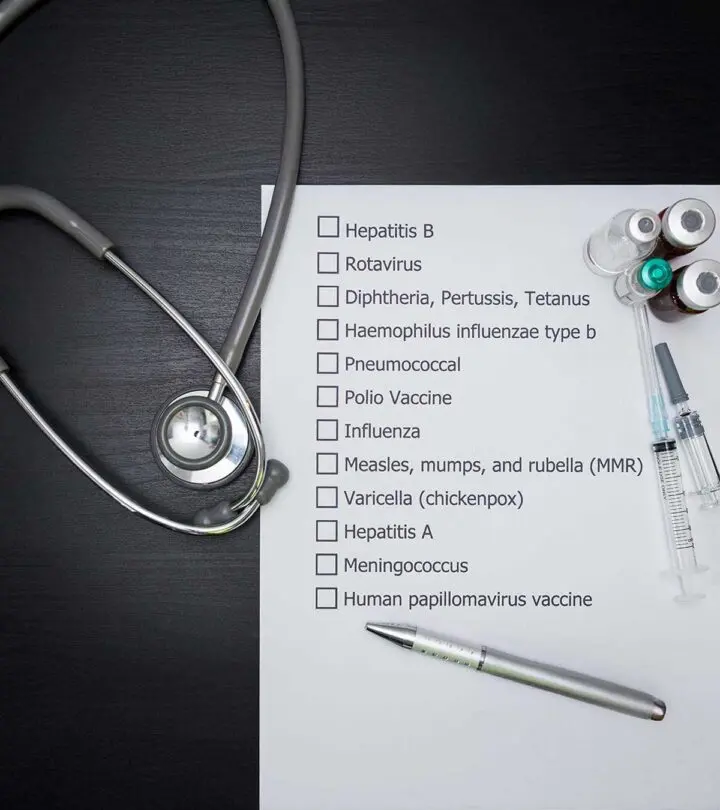Immunization Scheduler and Chart

Image: Shutterstock

Image: Shutterstock
Protect your child through vaccination!
Your child’s growth should not be hindered by health problems. Therefore, it is important to get your kid vaccinated during their childhood for different life-altering diseases such as polio, hepatitis, measles and more.
For getting the child immunized at the right time, you need to maintain a schedule, and an immunization chart helps you in this regard.
MomJunction has come up with an easy-to-use Immunization Scheduler, which you can personalize. The best thing you can also download a printable version of the immunization schedule.
Enter your child’s birth date, and you will receive a personalized child immunization schedule from birth until they reach 12 years.
Result
The immunization scheduler and chart is based on the recommendations of World Health Organization (WHO), which monitors vaccination schedules across the world.
Child’s immunization chart will include the following vaccines –
| Type of vaccine | No of shots (dosages) |
|---|---|
| Hepatitis B | 3 |
| DTaP | 6 |
| Hib | 3 – 4 (depends on the brand) |
| IPV (Polio) | 4 |
| Rotavirus | 2 – 3 (depends on the brand) |
| PCV13 (Pneumococcal) | 4 |
| MMR (Measles, mumps, rubella) | 2 |
| Influenza | 2 in first year then 1 (yearly) |
| Hepatitis A | 2 or 1 depending on the brand |
| Varicella (chicken pox) | 2 |
| HPV | 2 – 3 |
| Meningococcal | 2 |
Some vaccines are optional but some are mandatory. But, as parents you might want to know if vaccines are good for your baby.
Vaccines are usually safe as the benefits far outweigh the risks. Most babies do not have any significant problems, but some may develop specific side effects to some vaccines. Side effects are minor and usually disappear within a couple of days (2).
Let us have a look at the common side effects which some of the vaccines cause:

Mild side effects are alright, and disappear in a few days. But if you see your child suffering too much, do not ever hesitate to talk to a doctor.
MomJunction provides you a detailed immunization chart of your child’s vaccination schedule. The first two years vaccines are given in the months 2, 4, 6, 9, 12, 15, 18 and 24. Your baby will get around 10 different vaccinations (in 25 shots) before they reach two.
They will be receiving booster shots for some diseases such as MMR, tetanus, diphtheria, chicken pox, pertussis (DTaP) and polio before they reach four years of age, i.e., around school-time.
Your child will receive some other vaccines such as HPV and meningitis in their teens (6).
Your child’s immune system is stronger than you think, and you should not fear about combined vaccination. Our body deals with millions of bugs everyday. Hence, germs from a few vaccines are not a big deal. Moreover, giving a child more than one vaccine at a time can offer two advantages
• It provides them protection during the unsafe early months. • Several shots at a time mean fewer hospital visits. It saves both money and time and can be less painful for the child.Research says that getting multiple vaccines at a time is safe and does not cause any chronic health issues. The recommended vaccinations are active when given individually or in combination.
Make a quick appointment with the pediatrician, and you can usually continue the schedule from where it stopped. But remember that although it is possible to make up for the missed vaccines, it is still not safe to postpone shots schedule for kids. They may not be fully protected from certain preventable diseases.
In some cases, the doctor will advise a blood test for your baby around two months after the vaccination to assess their body’s response to a particular vaccine. Therefore, it is better not to miss the scheduled dates (7).
Disclaimer: The information provided is based on the World Health Organization (WHO) which gives information on worldwide immunization schedules. It provides the usually recommended dates for vaccinations based on the country you are living and the baby’s birth date. No information about your child will be stored. If your child is having any disease or is under any treatment, you should consult your doctor for advice as the immunization schedule would be modified.
Join the conversation and become a part of our nurturing community! Share your stories, experiences, and insights to connect with fellow parents.











